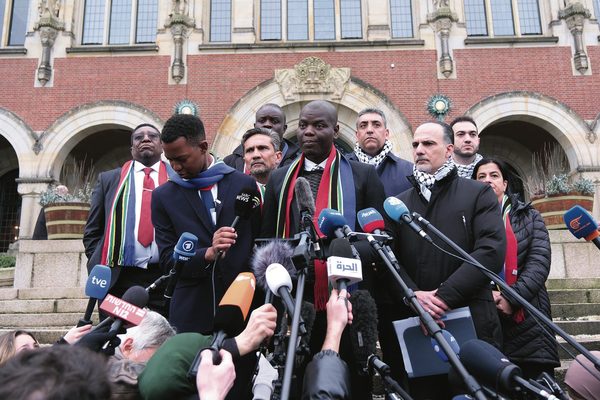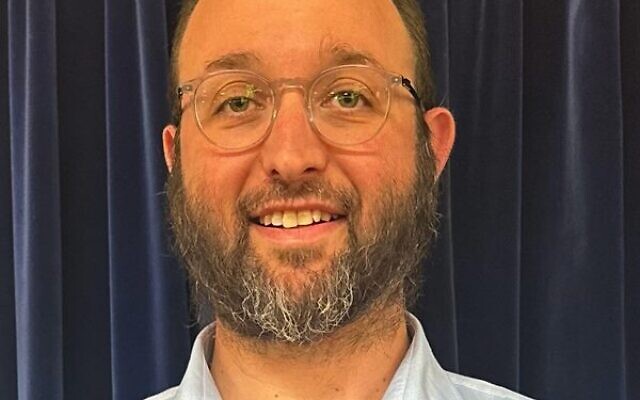South African expats distressed by ICJ action
It challenges the harmony of our dual heritage.
Witnessing the recent accusations of genocide made by the South African government against Israel did more than just strike me; they jolted the very core of my identity.
The allegations, suggesting a grievous crime against our deeply cherished homeland, are more than just hurtful; they are profoundly offensive and jarring.
In the wake of these accusations, my interactions with fellow South Africans, both here in Australia and in South Africa, have uncovered a pervasive and deep-seated sense of distress. This anguish arises from a complex interplay between our pride in South Africa and our inherent Jewish identity.
Our upbringing under the warm South African sun, enriched by the country’s diverse land and its vibrant people, has instilled in us an immense love and respect for this nation.
However, witnessing the South African government now cast such severe and unfounded allegations against Israel presents a profound challenge. It threatens to fray the deep connection we hold with our country of birth.
This painful predicament is not just about grappling with conflicting political viewpoints; it is a struggle that strikes at the heart of our identity. It challenges the harmony of our dual heritage, leaving us to reconcile our steadfast bond with South Africa while feeling a sense of betrayal over its stance towards Israel. For many of us, this situation forces a reevaluation of our relationship with a land we have always held dear, as we strive to maintain our integrity and loyalty to both our South African roots and our Jewish heritage.
The depiction of Israel’s actions in Gaza, especially considering the atrocities committed by Hamas on October 7 and their avowed annihilation of Israel and the Jewish people, grossly distorts the reality. The tragic loss of life in Gaza, including that of innocent children, is deeply mourned.
However, characterising these as acts of genocide overlooks the complexities of armed conflict and Israel’s imperative to defend its citizens and sovereignty.
The misrepresentation of the Gaza blockade as a symbol of Israeli inhumanity, rather than a necessary security measure against weapon smuggling, highlights the need for accurate understanding. The IDF’s daily efforts in uncovering weapon caches and terror tunnels within civilian areas emphasise the blockade’s criticality.
Contrary to claims of genocidal intent, Israel’s consistent delivery of humanitarian aid to Gaza demonstrates a commitment to civilian welfare, even amidst security challenges. Similarly, allegations that Israel is intentionally reducing Palestinian birth rates by targeting healthcare infrastructure are unfounded, overlooking the considerable medical assistance Israel provides to Palestinians, even amid conflict.
This skewed representation fuels global antisemitism under the guise of political critique, distressingly contributing to the demonisation of Israel and Jews worldwide.
This dangerous narrative risks overshadowing the Jewish people’s resilience, history and suffering.
In this challenging landscape, the Chief Rabbi of South Africa, Rabbi Warren Goldstein, emerges as a beacon of hope and courage. His resolute commitment to truth and his optimism are inspiring, reflecting the moral strength of the South African Jewish community. Despite our geographical dispersion, we have maintained a deep connection to South Africa, carrying our pride and heritage wherever we go.
The South African Jewish community’s legacy, especially in opposing apartheid and advocating for human rights, is a testament to our enduring values of justice and compassion. However, the current situation demands a stern call to action. The South African government must introspect and realise the necessity to charter a new path, one that aligns with the values of truth and justice that South Africa has fought for in its history.

Fortunately, further conversations with South Africans worldwide, amidst this turmoil, have also been laced with hope. The resilience and unity of the South African Jewish community, in the face of adversity, continue to inspire. Their ability to uphold dignity and ethical values in challenging times is a testament to our collective spirit.
It is now more imperative than ever for a collective voice, dedicated to honesty and justice, to challenge and reshape the narrative, reflecting the situation’s true complexities. This is about actively participating in creating a world where diverse perspectives unite in mutual respect and understanding.
The allegations have indeed spurred introspection and reinforced my commitment to truth, understanding and peace. South Africa, at this crucial juncture, has the potential to rise, filled with unity, understanding and shared progress. As a community, we stand firm against misinformation, drawing inspiration from leaders like Rabbi Goldstein.
Our steadfast resolve is anchored in the belief that truth, understanding and peace will ultimately triumph. I urge the South African government to undertake a rigorous self-examination, to acknowledge the perils of the distortions and misinformation currently being propagated, and to commit to a course of action that respects and upholds the dignity and integrity of all communities.
The future pride of Jewish South Africans, both within the nation and globally, hinges on the government’s willingness to correct its current trajectory, to embrace the truth, and to decisively reject these unfounded narratives.
Rabbi Daniel Rabin is rabbi of Caulfield Shule in Melbourne.


comments